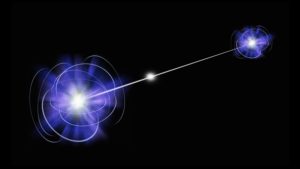 physicists evoke superlative responses, when they start talking about multiple universes. The domain is full of exotic jargon like, quantum entanglement, worm holes, and the fabric of space time. Each term worth spending a week, traversing the infinite possibilities they present. And when you encounter ‘nuance’ while exploring the difference between ‘parallel’ and
physicists evoke superlative responses, when they start talking about multiple universes. The domain is full of exotic jargon like, quantum entanglement, worm holes, and the fabric of space time. Each term worth spending a week, traversing the infinite possibilities they present. And when you encounter ‘nuance’ while exploring the difference between ‘parallel’ and
‘multi-verses’, the bland declarative science stuck in textbooks explodes with an unrivaled color palette.
Exciting, enthralling, eye opening, and many more such adjectives are needed to describe the wonderful world you enter with those theories. Interestingly, the excitement is not limited just to the scientific endeavors, but it spills into other domains, notably philosophy.
Because they help philosophers pursue an important question that’s bothering generations of humans, the question of ‘What if’
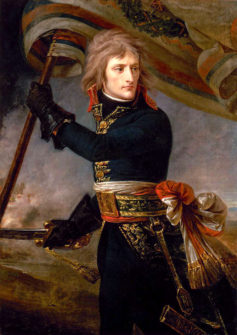 What if this had happened instead of that, what if Napoleon hadn’t invaded Russia, what if Gandhi had become a successful lawyer in India and never travelled to South Africa, what if Japan hadn’t bombed Pearl harbor, many many more ‘what if’s’.
What if this had happened instead of that, what if Napoleon hadn’t invaded Russia, what if Gandhi had become a successful lawyer in India and never travelled to South Africa, what if Japan hadn’t bombed Pearl harbor, many many more ‘what if’s’.
Until a few decades ago, the ‘what if’s’ were explored by philosophers and novelists alike, by using another scientific concept of ‘time travel’. However, they ran into the ‘grandfather paradox’, if a time traveller went back in time and killed their grandfather in his childhood, it would result in one of the parents, and ergo the time traveller not being born.
For thinkers and writers stuck in the paradox quicksand, multi universe theories were the much needed life line.
Of recent, three series come to the mind which exploit the multi – multiple universe theories the fullest. The Netflix series ‘Dark’, and two series on Amazon Prime, ‘The Man in the High Castle’ and ‘Counterpart’.
Before we explore these series, I want to confess – I have not watched them entirely . Like general theories on multiple universes, I have my very own theory on ‘multi season’ web series. I watch the first season of the series diligently, without skipping a part, even the recaps at the start of every episode. Because, I believe that int the first season the writers and creators of the show, work their hardest, and stay pure to the intended theme. Viewing a well knit first season is a delight. By the time the second season is commissioned, ‘success’ has happened, ‘feedback’ is in, certain characters become ‘popular’ and eventually ‘greed’ arrives. The greed to milk certain tropes repeatedly with a sad tendency to unnecessarily exasperate certain conflicts, and consequently the story meanders. Hence, generally I watch the first and the last episode of the second season and browse most of the remaining episodes in fast forward mode and even skip some episodes. A half baked second season encounters some disappointing reviews, and the creators undertake duty-bound corrective action in the third season. Here I have to make a decision, I watch the season only if it is the final season, otherwise, I skip the entire season. Corrective action is like swinging the pendulum, it mostly overshoots the mean and peaks at the other end of the spectrum. I can go on and on on the dynamics of multi-season web-series, however that rabbit hole will take us further away from our main topic, maybe in some other parallel universe I dive further. In summary, after the second I only watch the last episode of every season until the final season (which I watch in full).
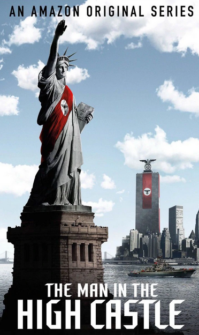 The most dynamic premise of the three mentioned series is the alternative history version in ‘The Man in the High castle’. The ‘what if’ explored in this series is the scenario, wherein the Nazi’s win the race to the nuclear bomb. They then take their ‘Heisenberg device’ and demolish the allied powers. Axis power split the world, and like Germany was partitioned by the winners of the second world war, in the alternate world, the axis victors Japan and the Nazis split United States of America between them.
The most dynamic premise of the three mentioned series is the alternative history version in ‘The Man in the High castle’. The ‘what if’ explored in this series is the scenario, wherein the Nazi’s win the race to the nuclear bomb. They then take their ‘Heisenberg device’ and demolish the allied powers. Axis power split the world, and like Germany was partitioned by the winners of the second world war, in the alternate world, the axis victors Japan and the Nazis split United States of America between them.
In ‘Counterpart’, scientific experiment in 1987 leads splitting of space time into two identical parallel worlds. After their creation, these identical worlds begin to deviate. This deviation has consequences for the characters in those worlds. , Each character in one world has a ‘counterpart’ character in the parallel world, but their life paths deviate.
‘Dark’ is thematically similar, but is limited to a local town called ‘Winden’ in Germany.  The series is sponsored by ‘3’ (the same guys who used to sponsor the Australian cricket team in the first decade of this century). The series begins with ‘3’ timelines, separated by ’33’ years (1953 -1986 – 2019) and ends with ‘3’ parallel universes and ‘3’ additional time lines (1888-1921-2053).
The series is sponsored by ‘3’ (the same guys who used to sponsor the Australian cricket team in the first decade of this century). The series begins with ‘3’ timelines, separated by ’33’ years (1953 -1986 – 2019) and ends with ‘3’ parallel universes and ‘3’ additional time lines (1888-1921-2053).
‘Dark’ is about personal ‘what ifs’. Each character is struggling with the consequences of their choices and display ‘human ego’ in believing that they can challenge ‘fate’ and change it. Much of it is around the inevitability of events and is quite fatalistic. All time travel paradoxes are adequately explored in ‘Dark’.
The most thought provoking of them is the ‘Bootstrap paradox’ or in simple terms what came first chicken or the egg. Time travellers from 2019 take a book ‘A Journey through time’ to 1953 and 1986. The book makes its way to the author. The author is then able to write the book because someone from the ‘future’ gave it to him, so the question is, When did the book originate? (The term Bootstrap Paradox comes from the science fiction book ‘By His Bootstraps’ (1941) written by Robert A. Heinlein.)
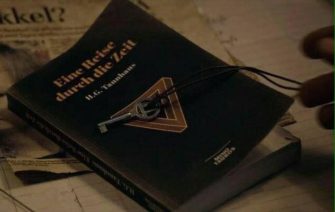
Dark ups the ante on this paradox, after objects, people travel back in time to become their own grandfathers and grandmothers. Family trees become so complex that they require their own wikipedia page.
(The term Bootstrap Paradox comes from the science fiction book ‘By His Bootstraps’ (1941) written by Robert A. Heinlein.)
Dark ups the ante on this paradox, after objects, people travel back in time to become their own grandfathers and grandmothers. Family trees become so complex that they require their own wikipedia page.
Where Dark deals with the personal turmoil, ‘The Man in the High Castle’ deals with global turmoil. It is more about political philosophy of nation.
One hypothesis is that events or individual people are immaterial in the larger scheme of theme. In this theory the answer to ‘What if Winston Churchill had died in an accident in 1931?’ is that nothing much would have changed, someone else would have taken is place with minor changes in the near term, in the long term things would be similar.
‘The Man in the High Castle’ subscribes to this philosophy. The emergence of the ‘Reich’ is unable to stop the winds of racial equality. One cold war is replaced by another between the Nazi’s and the Japanese. And the nations whose destiny is to be free, eventually will become free albeit with a slight delay.
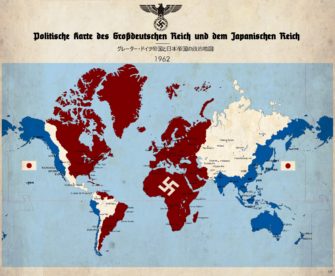
The trajectory remains the same, with minor ripples here and there. The only problem is that, though the ripples are unable to change fate of big ideas, they create a storm in the lives of individuals. Some fates are sealed either way, a dedicated boy in one universe lays his life in his total dedication to the ideologies of the Reich, the same dedicated boy lays his life in his total dedication to fight to the communists in the other universe. Some people exercise ‘free will’ , and suffer the consequences of their choice. Either way people are doomed one way or the other.
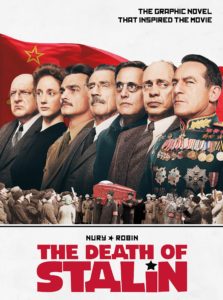 Another political point that comes through is that dictatorships and authoritarian regimes, run into chaos during succession battles. The strong men are simply insecure. Stalin’s death was preceded and succeeded by a purge of many generals, in the alternate universe, Hitler’s death meets the same fate.
Another political point that comes through is that dictatorships and authoritarian regimes, run into chaos during succession battles. The strong men are simply insecure. Stalin’s death was preceded and succeeded by a purge of many generals, in the alternate universe, Hitler’s death meets the same fate.
This makes me wonder, is our imagination truly free? Isn’t our imagination bound by what we know, or is there anything that we can call pure imagination ? After all, the show creators worldview is shaped by this world we live in, hence, isn’t very likely that the same worldview spills into any alternate world that they create !
Both, Counterpart and ‘The Man in High Castle’, bring out the inner mistrust in human beings. In Counterpart, both parallel universes have the same start point, the people are the same, yet they don’t trust each other. They divide themselves into ‘alpha’ world and ‘prime’ world, spy on each other, sabotage each other. Their combined paths are towards mutual destruction.
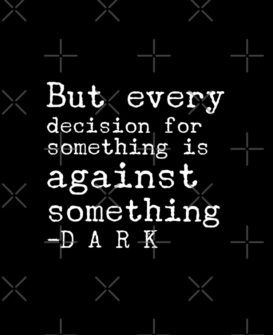 on the other hand is about inevitability. Everyone wants to change the inevitable, only to realize that every action of theirs contributes to the inevitable. And yes, the inevitable is an apocalypse. The only solution proposed is to destroy all the alternate realities and to be content with only one reality. Some characters in the alternate universe are products of that alternate reality. Their existence is directly linked to the existence of that alternate reality. Yet, they choose oblivion instead of a life caught in repeated time cycles. The prefer not living over living the same life again and again.
on the other hand is about inevitability. Everyone wants to change the inevitable, only to realize that every action of theirs contributes to the inevitable. And yes, the inevitable is an apocalypse. The only solution proposed is to destroy all the alternate realities and to be content with only one reality. Some characters in the alternate universe are products of that alternate reality. Their existence is directly linked to the existence of that alternate reality. Yet, they choose oblivion instead of a life caught in repeated time cycles. The prefer not living over living the same life again and again.
Philosophical is it like preferring ‘moksha’ over repeated cycle of life and death? We better avoid that rabbit hole.
In conclusion, the answer to ‘what if’s’ does not fundamentally alter anything. Life is a suffering and knowledge is a burden.
One highly irritating point before we leave this topic. Series like ‘Stranger things’ , ‘Dark’ alike and movies like ‘IT’ rely on children making highly rational and logical choices. It might be the case that children are actually more rational and logical, but are they perseverant enough. I mean, just imagine a child is given the choice of the red pill or the blue pill. Nine out of ten times a child eats both the pills and the one other time is when they refuse to eat any pill and demand a green pill. ( You get the gist, in Dark, they moment two teenagers start debating, it is time to tap the right side of the screen and skip a few minutes ahead)
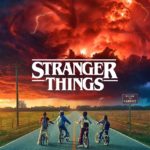

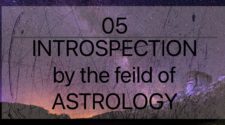
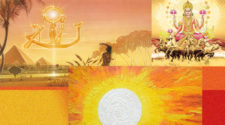



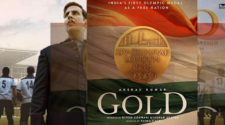
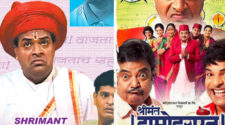


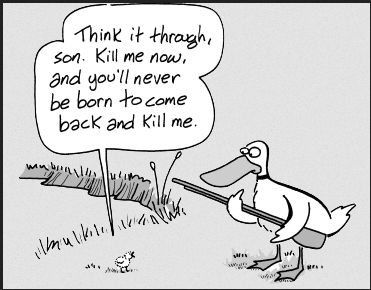
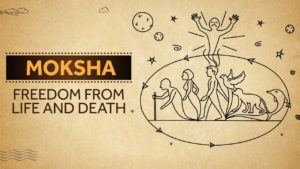

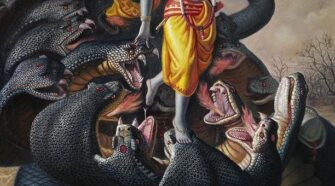
Dark did not impress me , or may be i had high expectation due to stranger things.
There is this korean series eternal monarch where the series plays in two Koreas in 2 separate universes. Onset it was good,but romance killed the whole plot, utterly destroyed a nice concept.
What do you think, do multiverse exist ?
You had expectations due to stranger things!! perhaps season 1, hopefully not rest of the seasons. About multiverse’s, yes, they do exists, I an alternate universe idiagress blog is the no 1 blog in the universe
in that universe, still a blog ?
or in many universes its in different forms? oh! is that allowed ? many what if in my mind ….
universes deviate slightly, not by much as the fundamentals remain same…ur karma is roughly same regardless of the universe
Juts hold that thought , while i look for my ‘Handbook for Multiple Universes’ but wait which universe did i use it in
Don’t use a physical handbook, it is better to keep things in the ‘cloud’ and access them from anywhere
Dont they say ‘gele dhagaat’ is that the Cloud technology ?
gele daghat is rain, dhagat kadhi hi jata yete that is cloud technology
‘Cloud for dummies’ is what i need then. Let me see if amazon has it 😀
now a days mostly dummies are in the cloud, and why are you visiting a river to get this information
Could there be something more deeper going on with all of this? Could we be seeing the signs of the times unfolding? Could this be a door of opportunity for people to open their hearts to what God has to say?
many interesting questions
good article
Worlds in world in a world